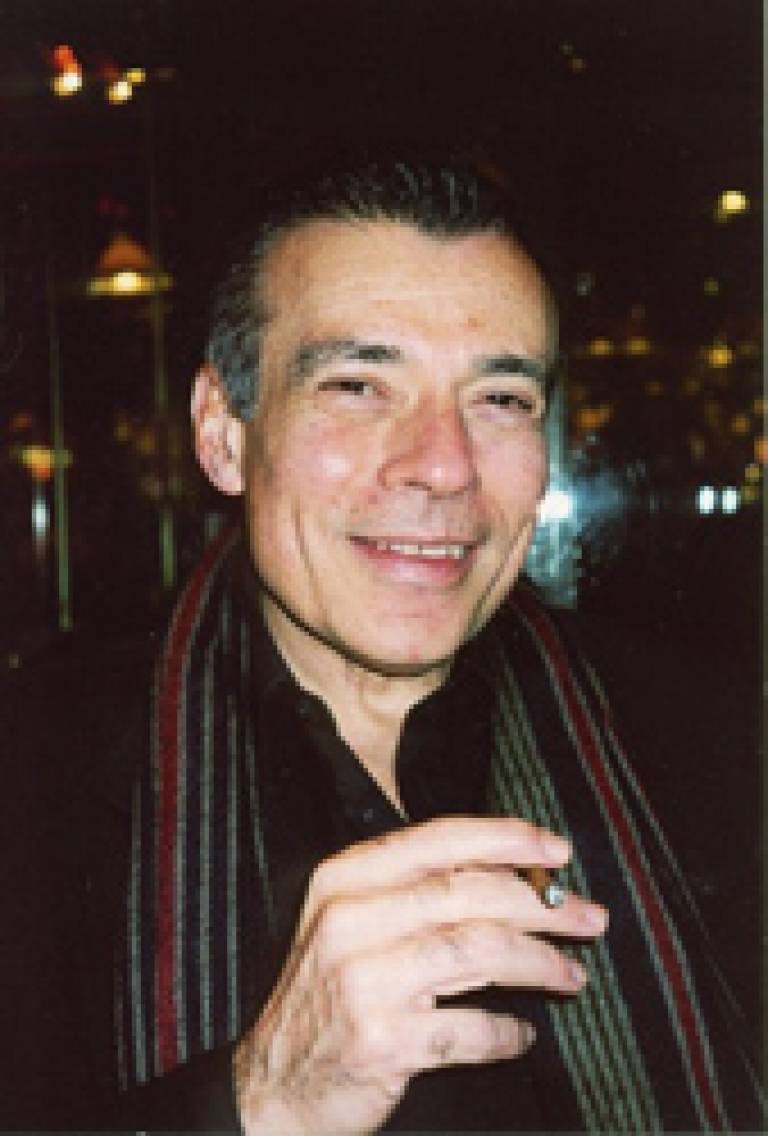Two UCL contenders for Aventis Prize
21 April 2006
Two members of UCL have been shortlisted for the Aventis Prize for Science Books.
 'Empire of the Stars: Obsession, Friendship, and Betrayal in the Quest for Black Holes', by Professor Arthur Miller (UCL Science & Technology Studies), and 'Power, Sex, Suicide: Mitochondria and the Meaning of Life', by Dr Nick Lane (Royal Free & UCL Medical School), will be competing with other leading works on science in this year's competition.
'Empire of the Stars: Obsession, Friendship, and Betrayal in the Quest for Black Holes', by Professor Arthur Miller (UCL Science & Technology Studies), and 'Power, Sex, Suicide: Mitochondria and the Meaning of Life', by Dr Nick Lane (Royal Free & UCL Medical School), will be competing with other leading works on science in this year's competition.
The result will be announced at an award ceremony at The Royal Society on 16 May 2006. Now in their 18th year, the Aventis Prizes for Science Books are awarded for high quality and accessible writing on science, with General and Junior categories for titles aimed at adults and children. Previous winners of the £10,000 prizes have included Stephen Hawking and Bill Bryson.
Shortlisted for the General Prize, 'Empire of the Stars' tells the story of how in August 1930, on a voyage from Madras to London, a young Indian looked up at the stars and contemplated their fate. Subrahmanyan Chandrasekhar - Chandra, as he was called - calculated that certain stars would suffer a violent death, collapsing virtually to nothing. This extraordinary claim, the first mathematical description of black holes, rankled one of the greatest astrophysicists of the day, Sir Arthur Eddington. When Chandra expounded his theory in front of the assembled great and good of the Royal Astronomical Society in 1935, Eddington subjected him to humiliating public ridicule, thereby setting into motion one of the greatest scientific feuds of the twentieth century - and hindering the progress of astrophysics for nearly forty years.
Professor Miller said: "I am delighted and honoured by the Royal Society's recognition of my book."
Also in the running for the General Prize, 'Power, Sex, Suicide' looks at mitochondria, which are tiny structures located inside our cells that serve as miniature powerhouses, using oxygen to generate power. There are about 10 million billion mitochondria in a human being, and while they were once considered mere workhorses for complex cells with nuclei, their significance is now undergoing a radical revision. Mitochondria are now seen as the key ingredient that made complex life possible at all. In fact, it is now believed that mitochondria give us our energy, are behind the origin of two sexes, and direct our ageing and death.
Dr Lane, an honorary research fellow, said: "I'm delighted to be shortlisted. It's a recognition that I've managed to get mitochondria through to a wider audience, and I hope it will encourage people to read the book!"
To find out more, follow the links at the bottom of this article.
Image 1: Professor Arthur Miller
Image 2: Dr Nick Lane
 Close
Close

